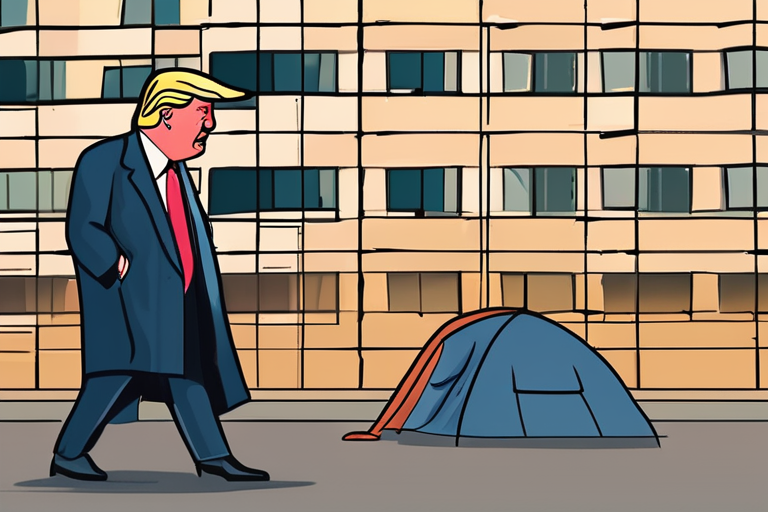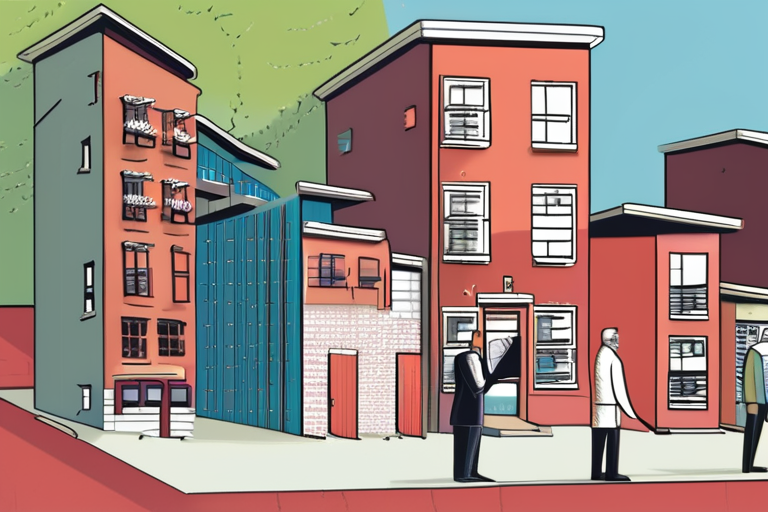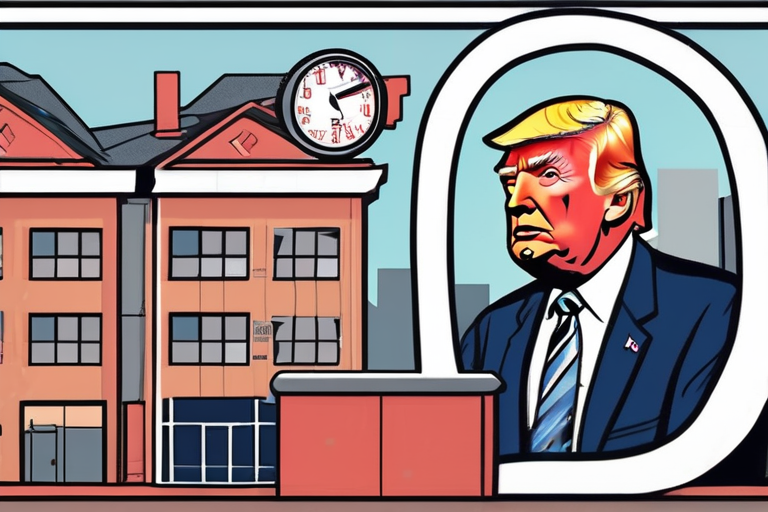The Trump administration's recent policy shift away from long-term housing for homelessness has sent shockwaves through the US housing market, sparking concerns about the potential consequences for vulnerable populations. The move, which involves deep cuts to funding for long-term housing and a shift towards transitional housing that requires work and addiction treatment, has been met with criticism from housing advocates and experts.
According to sources, the Department of Housing and Urban Development (HUD) has announced that it will be increasing overall homelessness funding from $3.6 billion to $3.9 billion. However, the majority of this increase will be allocated towards transitional housing programs, which are expected to require participants to engage in work and addiction treatment. This shift is seen as a significant departure from the previous administration's approach, which focused on providing long-term housing solutions for homeless individuals.
Critics argue that the new policy will put 170,000 people at risk of losing their housing, as programs around the country will have little time to adjust to the new funding requirements. Housing advocates have expressed concerns that the policy change will exacerbate the homelessness crisis, particularly in cities with already-strained housing markets.
The policy shift has also raised questions about the effectiveness of transitional housing programs in addressing homelessness. While proponents argue that these programs can help individuals achieve self-sufficiency, critics point out that they often lack the necessary resources and support to provide long-term solutions.
The Trump administration's policy change has been met with skepticism by international experts, who note that the US is one of the few developed countries that does not provide a guaranteed right to housing. In contrast, many European countries have implemented policies that prioritize affordable housing and social welfare programs to address homelessness.
The policy shift is also seen as a reflection of the Trump administration's broader approach to social welfare policy, which has been characterized by a focus on work requirements and reduced government spending. This approach has been criticized by many experts, who argue that it fails to address the root causes of homelessness and instead punishes vulnerable populations.
As the policy change takes effect, housing advocates and experts will be closely watching the impact on homelessness rates and the effectiveness of transitional housing programs. The move is seen as a significant departure from the previous administration's approach, and its consequences will likely be felt for years to come.
In the global context, the US policy shift is notable for its contrast with international approaches to addressing homelessness. Many countries have implemented policies that prioritize affordable housing and social welfare programs, and have seen significant reductions in homelessness rates as a result. The US policy change is seen as a step backward in this regard, and has sparked concerns about the country's commitment to addressing homelessness.
The business implications of the policy shift are significant, particularly for companies that provide housing and social services to vulnerable populations. The move is expected to lead to increased competition for funding and resources, as organizations scramble to adapt to the new policy requirements. Companies that are well-positioned to navigate this shift will be those that have a strong track record of providing effective transitional housing programs and have established relationships with government agencies.
In conclusion, the Trump administration's policy shift away from long-term housing for homelessness has significant implications for the US housing market and vulnerable populations. While the policy change is seen as a step backward in addressing homelessness, it also reflects the broader approach to social welfare policy that has characterized the Trump administration. As the policy takes effect, housing advocates and experts will be closely watching the impact on homelessness rates and the effectiveness of transitional housing programs.



























Share & Engage Share
Share this article